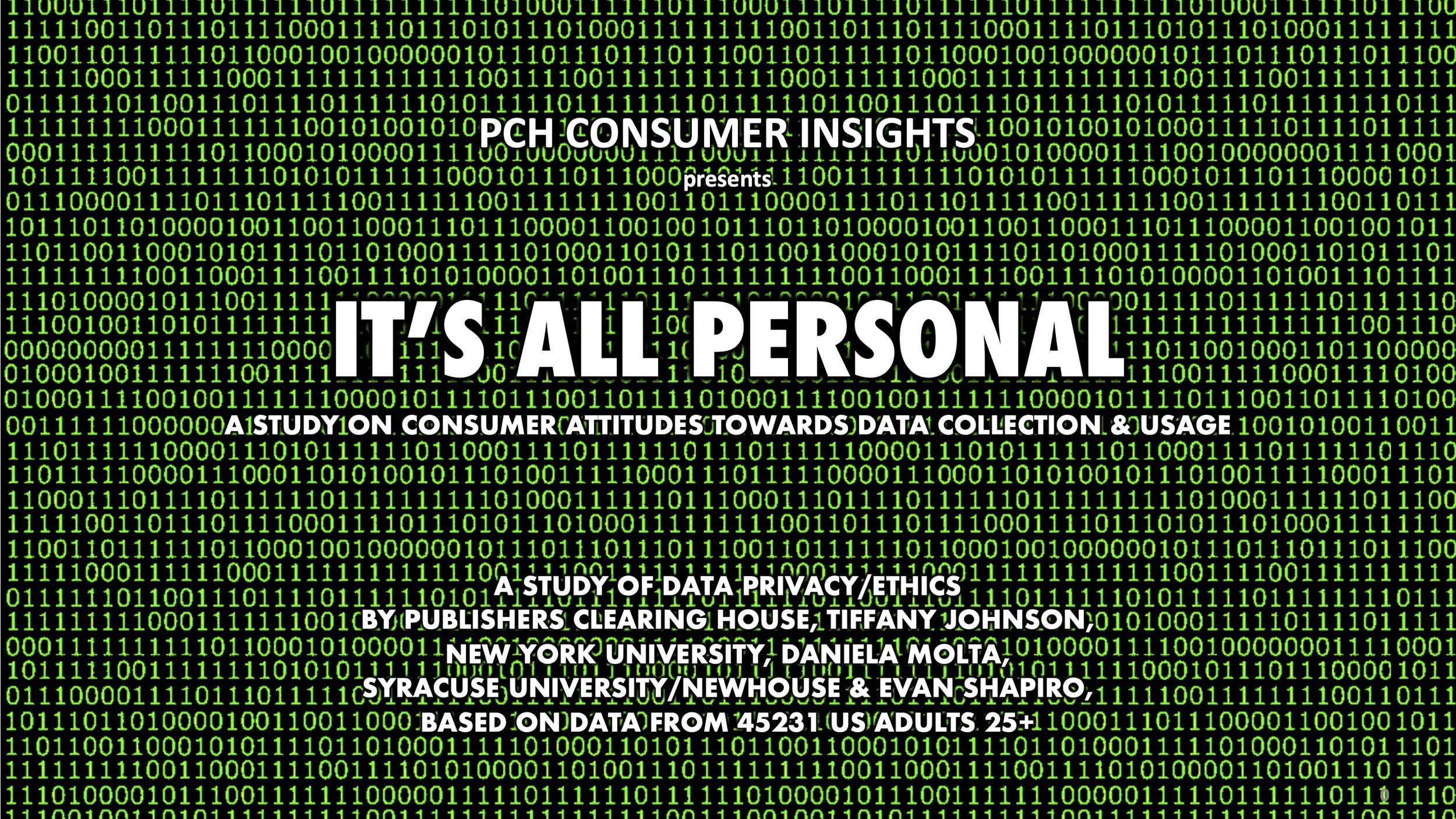Largest Privacy Study To Date Reveals Stark Consumer Concerns
“No one really cares about data privacy anymore. If anything, they just want to figure out how to make money from it.”
That’s a thought you may have heard many times over the past decade or so. Perhaps a bit more nuanced, but that’s what was meant.
And like me, you may have figured it was probably true. If not for “most people” then a sizeable percentage of them.
A new study from Publishers Clearing House, Evan Shapiro and others, based on responses from a whopping 45,231 Americans over the age of 25, seems to put that theory to rest.
If anything, it reveals a deeply personal connection between consumers and their data, while raising all sorts of seriously thorny questions around digital privacy.
The findings definitely buck the aforementioned conventional wisdom that jaded consumers are no longer concerned about privacy.
In fact, the opposite is true: a vast majority of consumers view virtually all their data as personal—even seemingly innocuous stats like workout data are considered private by nearly half of the respondents, while just over half feel uncomfortable sharing their TV viewing habits.
This is a wake-up call in an age where so much personal data is routinely mined to profile consumers for advertising and (in a relatively recent development) AI model training.
That said, the study reveals a significant gap between concern and control, with many feeling unsure about how their data is being collected and used. It is a pretty sizable gap too— while 86% of Americans are concerned about data privacy and security, only a fraction feel well-informed about how their personal data is being used.
I won’t give away the ending—you need to download the report for that—but in additional to sounding some very loud alarm bells, the report does offer some concrete suggestions on steps that businesses can take to solve this problem, solutions that will work to everyone’s advantage.
A bit more on the methodology too, as per Evan Shapiro in Forbes: “To rephrase Marshall McLuhan, “the methodology is the message.” Unlike typical mainstream surveys, PCH Consumer Insights leverages zero-party data from its 15 million registered, engaged users who voluntarily participate in PCH’s experiences and provide survey responses. This lowers the instance of fraud among the respondents to less than 2% – an industry-wide low – and allows us to focus on the answers to the survey, rather than spending time and effort vetting traits such as age, gender, or geography. Our sample of more than 45,000 respondents for this study is larger and higher quality than similarly themed surveys, ensuring our data is more accurate.”


